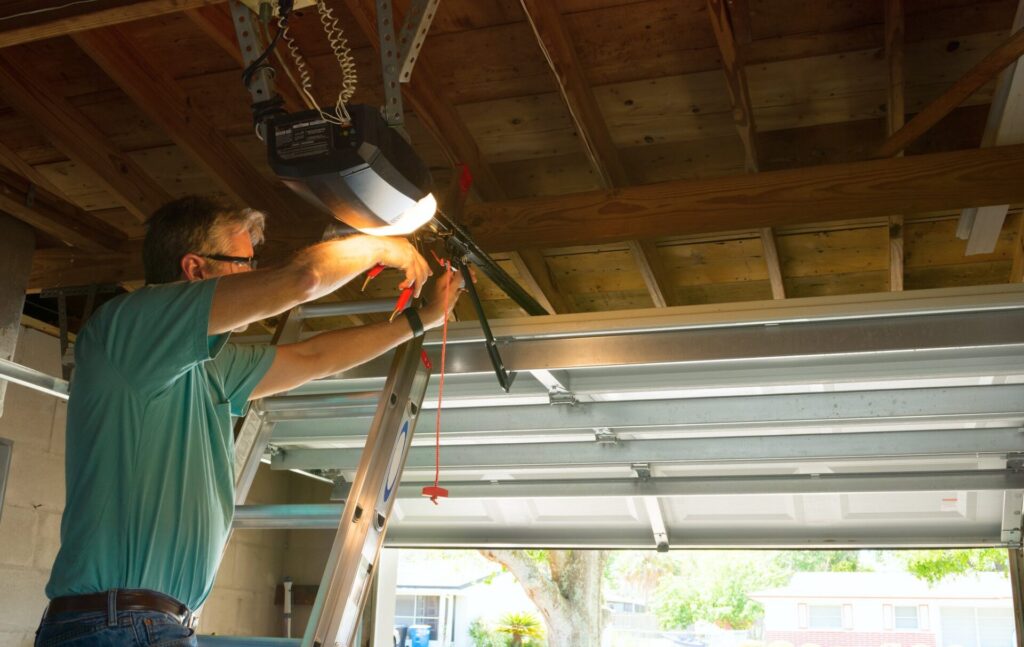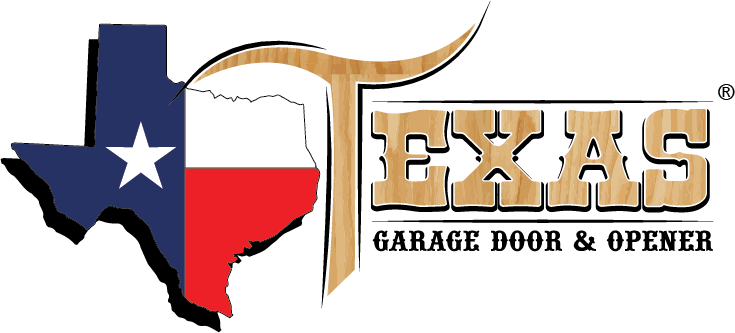Garage Door Troubleshooting: What Texas Homeowners Can Fix and When to Call the Pros
At Texas Garage Door and Opener, we understand the frustration when your garage door suddenly stops working. Whether you’re dealing with a noisy door in the Dallas heat or a remote that won’t respond during unpredictable Texas storms, we’re here to help you identify problems you can safely fix yourself – and recognize when professional expertise is essential for your family’s safety.
Understanding basic troubleshooting for your garage door can save you both time and money. However, safety always comes first – garage doors are the largest moving objects in your home and can be extremely dangerous if not handled properly. Texas weather presents unique challenges, from scorching 100°F+ heat to storms with winds measuring up to 75 mph, creating conditions that accelerate wear and specific problems.

Simple Remote and Power Issues You Can Safely Resolve
Remote Control Problems: Check batteries first – garage door control batteries wear out so infrequently that homeowners often forget about them. If your remote isn’t working but the wall switch is, replace the internal battery (usually a small watch-type battery). Ensure you’re within proper range and check that no branches or debris are blocking the antenna.
Power Supply Issues: When your door won’t respond to any controls, verify the opener is plugged in and check that the circuit breaker hasn’t tripped. Test all controls to determine if only one is faulty. Sometimes the solution is simply ensuring the door isn’t locked – most switches have separate lock buttons.
Sensor Problems: If your door starts closing but immediately reopens, safety sensors may be misaligned or blocked. Clean sensor lenses and ensure nothing obstructs the beam near the ground. Bright Texas sunlight can interfere with sensors, so create shade over the lenses if needed.
Maintenance Tasks That Prevent Bigger Problems
Regular maintenance is your best defense against costly repairs, especially in Texas’s demanding climate. These simple tasks can be performed safely by homeowners.
Lubrication: Apply silicone-based lubricant to springs, rollers, hinges, and tracks every three to six months. Clean parts first to remove dirt and debris, then apply lubricant sparingly. Avoid WD-40 or oil-based lubricants that attract dirt.
Visual Inspections: Check for signs of wear like frayed cables, loose bolts, rust on metal components, and cracks in panels. Ensure weather stripping remains intact – crucial in Texas heat and humidity for energy efficiency.
Hardware Tightening: Ensure all nuts, bolts, and fasteners are snug. Loose hardware can cause alignment problems, but avoid over-tightening which can strip threads or crack components.
Noise Issues You Can Address
Garage door noise is common in Texas, especially with attached garages where sound travels into living spaces. Many noise issues can be resolved with basic maintenance.
Common Solutions: Strange sounds usually indicate problems with wheels and tracks. Metal-on-metal grating sounds typically mean lack of lubrication, while grinding suggests debris in tracks. Clean tracks thoroughly and apply appropriate lubricant to moving parts.
Track Maintenance: Clean your garage door tracks and rotate each roller individually. Each should move easily, and tracks should be clear of debris – especially important in Texas where dust, pollen, and seasonal debris accumulate quickly.
When Professional Help Is Essential
Certain problems require immediate professional attention. Understanding these boundaries protects your family and prevents costly damage.
Spring and Cable Issues: When springs snap, your garage door can drop quickly. If you hear springs snap, do not try to open your garage – the system can fire springs as projectiles causing injury. Springs are under extreme tension and require specialized tools and expertise.
Opener Motor Problems: If your motor is overheating, making unusual sounds, or failing despite having power, professional replacement may be needed. Always hire professionals for opener installation to prevent injury or damage.
Safety Feature Malfunctions: Under federal regulations, tampering with safety features is illegal. If sensors, auto-reverse functions, or emergency releases aren’t working properly, contact professionals immediately.
Texas-Specific Garage Door Considerations
Weather Challenges: Texas weather creates unique problems – flooding can damage components, hail can dent panels, and high winds can blow doors off tracks. Regular inspection of weather seals, track alignment, and door balance becomes critical in our climate.
Heat Management: Texas summers cause garage temperatures to soar. Ensure your door’s insulation and weather sealing are in good condition to maintain comfortable temperatures and reduce energy costs.
Wind Requirements: Texas requires garage doors rated for 90-130 mph winds depending on location. If experiencing frequent wind issues, consult professionals about appropriate wind-rated doors for your area.
Ready for Professional Garage Door Service? Texas Garage Door and Opener Is Here to Help!
While DIY maintenance and basic troubleshooting can solve many common garage door problems, some issues require the expertise, specialized tools, and safety knowledge that only professionals possess. At Texas Garage Door and Opener, we’re committed to keeping Texas families safe while ensuring their garage doors operate reliably in our challenging climate.
Our experienced technicians understand the unique demands Texas weather places on garage door systems, from heat expansion issues to storm damage recovery. We provide comprehensive services including repairs, maintenance, installations, and emergency assistance throughout Texas communities.
Don’t risk your family’s safety or costly damage – contact Texas Garage Door and Opener today for expert service you can trust! Call us to schedule your consultation. We’re here when you need us most, providing reliable solutions for all your garage door needs.
